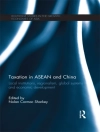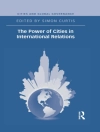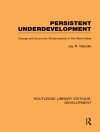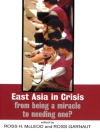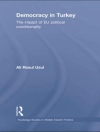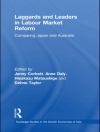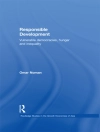This volume is put together in honor of a distinguished historian of science, Kostas Gavroglu, whose work has won international acclaim, and has been pivotal in establishing the discipline of history of science in Greece, its consolidation in other countries of the European Periphery, and the constructive dialogue of these emerging communities with an extended community of international scholars.
The papers in the volume reflect Gavroglu’s broad range of intellectual interests and touch upon significant themes in recent history and philosophy of science. They include topics in the history of modern physical sciences, science and technology in the European periphery, integrated history and philosophy of science, historiographical considerations, and intersections with the history of mathematics, technology and contemporary issues. They are authored by eminent scholars whose academic and personal trajectories crossed with Gavroglu’s.
The book will interest historians andphilosophers of science and technology alike, as well as science studies scholars, and generally readers interested in the role of the sciences in the past in various geographical contexts.
قائمة المحتويات
PART I: HISTORY OF MODERN PHYSICAL SCIENCES.- Chapter 1: Louis Paul Cailletet, the Liquefaction of Oxygen and the Emergence of an ‘In-between Discipline’: Low-temperature Research; Faidra Papanelopoulou.- Chapter 2: Lindemann and Einstein: The Oxford Connexion; Robert Fox.- Chapter 3: Einstein and Hilbert; John Stachel.- Chapter 4: Quantum Chemistry and the Quantum Revolution; Sylvan Schweber and Gal Ben Porat.- PART II: STEP MATTERS.- Chapter 5: Centres and Peripheries Revisited: STEP and the Mainstream Historiography of Science; Agusti Nieto-Galan.- Chapter 6: At the Center and the Periphery: Joseph Pitton de Tournefort Botanizes in Crete; Lorraine Daston.- Chapter 7: Boscovich in Britain; John Heilbron.- Chapter 8: Neo-Hellenic Enlightenment: In Search of a European Identity; Manolis Patiniotis.- Chapter 9: The Non-introduction of Low-temperature Physics in Spain: Julio Palacios and Heike Kamerlingh Onnes; Jose Manuel Sanchez Ron.- Chapter 10: Beyond Borders in the History of Science Education; Jose Ramon Bertomeu Sanchez.- PART III: HISTORY AND PHILOSOPHY OF SCIENCE.- Chapter 11: Probable Reasoning and Its Novelties; Ian Hacking.- Chapter 12: Reductionism and the Relation between Chemistry and Physics; Hasok Chang.- Chapter 13: The Internal-External Sistinction Sheds Light on the History of the Twentieth-century Philosophy of Science; Gürol Irzik.- Chapter 14: Concepts out of Theoretical Contexts; Theodore Arabatzis and Nancy Nersessian.- PART IV: HISTORIOGRAPHICAL MUSINGS.- Chapter 15: Globalization of Knowledge in History and its Normative Challenges; Jürgen Renn.- Chapter 16: The Global and the Local in the Study of the Humanities; Rivka Feldhay.- Chapter 17: On Scientific Biography and Biographies of Scientists; Helge Kragh.- Chapter 18: Biography and the History of Science; Mary Jo Nye.- Chapter 19: Different Undertakings, Common Practices: Some Directions for the History of Science; Ana Simões.- PART V: BEYOND HISTORY OF SCIENCE: MATHEMATICS, TECHNOLOGYAND CONTEMPORARY ISSUES.- Chapter 20: The Meaning of Hypostasis in Diophantus’ Arithmetica; Jean Christianidis.- Chapter 21: On the Hazardousness of the Concept ‘Technology’: Notes on a Conversation between the History of Science and the History of Technology; Aristotle Tympas.- Chapter 22: Wireless at the Bar: Experts, Circuits and Marconi’s Inventions in Patent Disputes in Early Twentieth-century Britain; Efstathios Arapostathis.- Chapter 23: Curating the European University; Hans Jörg Rheinberger.- Chapter 24: Can Science Make Peace with the Environment? Science, Power, Exploitation; Angelo Baracca.


